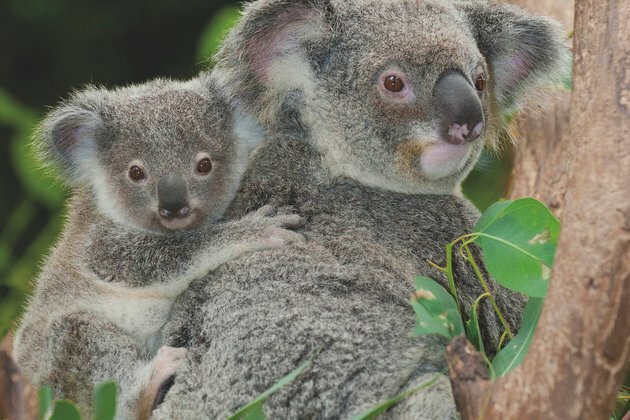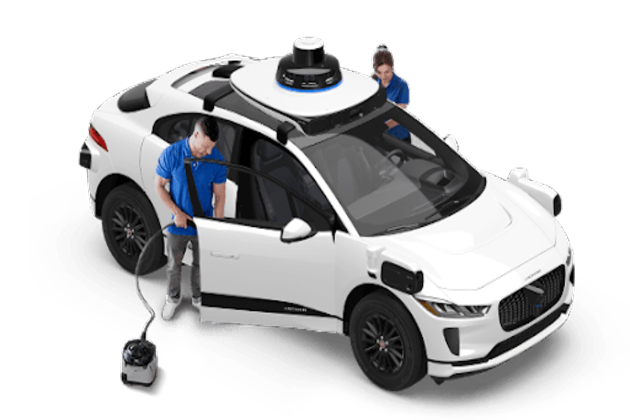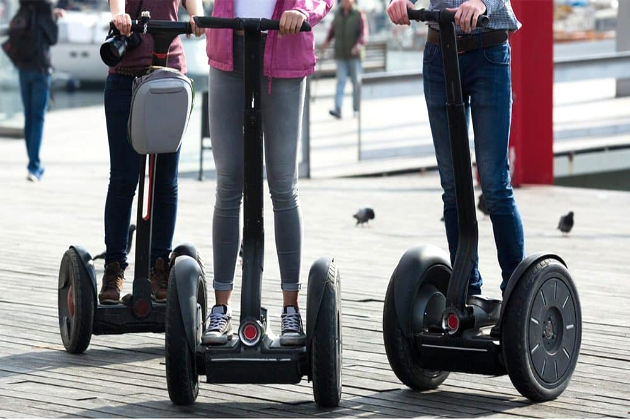A virus is attacking koalas' genes. But their DNA is fighting back
The Conversation
11 Oct 2019, 01:47 GMT+10

A virus that infects koalas is steadily integrating itself into their DNA, ensuring that it is passed down from generation to generation. But the koala genome is defending itself, revealing that DNA has its own immune system to shut down invaders.
The virus, called koala retrovirus (KoRV), is linked to weakened immunity, cancer, and chlamydia infection in koalas. All retroviruses hijack the DNA in some cells of their host's body, but not all of them manage to be transmitted to the host's offspring.
Your DNA is 8% virus
Over the millions of years of evolutionary history, retroviruses have at one time or another made their way into the genomes of all species of vertebrates that we have studied.
We know about these ancient infections because retroviruses sometimes infect the animal's sperm or egg cells, which means the virus incorporates its own DNA sequences into the genome that is passed from generation to generation.
Read more: An ancient retrovirus has been found in human DNA - and it might still be active
These viral sequences can contribute to disease, but have also been "co-opted" by the host animals for processes that are essential to normal development. As much as 8% of the human genome is made up of the remnants of infectious viruses.
While we know that retroviruses have frequently appeared during evolutionary history, we don't know much about how retroviral sequences infiltrate sperm and egg cells, or how these cells react.
Catching a retrovirus in the act
Almost all known retrovirus genome invasions happened millions of years ago. However, KoRV is a recently identified exception. The virus spreads between individuals, but is also infecting sperm and egg cells, so many koalas are born with this pathogen as part of their genome.
My colleagues and I at the University of Queensland are collaborating with scientists from the University of Massachusetts Medical School to analyse how koala sperm and egg cells respond to KoRV-A infection.
Our findings, published today in Cell, suggest these cells mount a novel "innate genome immune response" to viral infection, which may help control the spread of infectious KoRV.
Within this project, the team analysed DNA and RNA from different tissue samples from deceased wild koalas from South East Queensland. (Like DNA, RNA also contains genetic information about the koalas - but it is also what KoRV's own genome is made of.)
The team specifically looked for short sequences of RNA, between 23 and 35 nucleotides long, known as PIWI Interacting RNAs (piRNAs). Clusters of piRNA sequences are retained within the genome and serve as a kind of memory bank of undesirable sequences - signatures of invading viruses - to be targeted.
An immune system for the genome
Based on our new findings, we suggest that there is a specialised immune system to defend against retroviral genome invasion. Like the ordinary immune system, this one includes an innate response - a sort of general-purpose defence against attackers - and an adaptive response, which learns to recognise specific pathogens and take them down.
At the early stages of egg or sperm infection, the altered DNA sequence results in a "molecular pattern" that is recognised by an innate genome immune system, which stops the activity of the virus and starts producing signature piRNA sequences to recognise the invader.
Read more: Koalas sniff out juicy leaves and break down eucalypt toxins - it's in their genome
The innate immune response works until a memory of the genome invader is created and a sequence-specific adaptive response kicks in.
We propose a framework through which a sequence from an invading retrovirus can first have its genes "silenced", and then through targeted processes it eventually becomes an integral part of the host genome.
This "genome immune system" changes our understanding of what shapes the genomes of all animals. No more can we view the genome as a defenceless entity governed purely by natural selection - it fights back.
Author: Keith Chappell - Senior Research Fellow, School of Chemistry and Molecular Biosciences, The University of Queensland 
 Share
Share
 Tweet
Tweet
 Share
Share
 Flip
Flip
 Email
Email
Watch latest videos
Subscribe and Follow
Get a daily dose of Beijing Bulletin news through our daily email, its complimentary and keeps you fully up to date with world and business news as well.
News RELEASES
Publish news of your business, community or sports group, personnel appointments, major event and more by submitting a news release to Beijing Bulletin.
More InformationTechnology
SectionRegulatory win in India paves way for Starlink's expansion
BENGALURU, India: A major regulatory breakthrough in India could mark a turning point for Starlink, Elon Musk's satellite internet...
China reassures Apple CEO Tim Cook amid geopolitical tensions
BEIJING, China: As global tech firms navigate rising geopolitical tensions, China has extended a warm signal to Apple, one of its most...
PM Modi highlights India's "unity in diversity" as country celebrates month of festivals
New Delhi [India], March 30 (ANI): Prime Minister Narendra Modi, while addressing the nation during his monthly 'Mann ki Baat' program,...
European Commission to invest 1.3 billion in AI, cybersecurity, digital skills
BRUSSELS, 29th March, 2025 (WAM) -- The European Commission will invest 1.3 billion in artificial intelligence (AI), cybersecurity...
48% of BFSI companies flag data security as a priority when deploying AI: Survey
New Delhi [India], March 29 (ANI): Nearly half (48 per cent) of banking, financial services and insurance (BFSI) companies flagged...
Delhi NCR and Bengaluru lead office leasing activity in Q1 2025, contributing to 15% yearly growth: Colliers
New Delhi [India], March 29 (ANI): Delhi NCR and Bengaluru together drove nearly half of the office leasing activity during the first...
Business
SectionTo meet US AI energy surge, Schneider Electric invests $700 million
ANDOVER, Massachusetts: As artificial intelligence drives up energy demand across the United States, Schneider Electric is making a...
Americans grow gloomy on finances as confidence declines further
WASHINGTON, D.C.: U.S. consumer confidence continued to drop in 2025, hitting its lowest level in 12 years as more Americans worry...
Waymo gears up for driverless expansion in Washington, D.C.
WASHINGTON, D.C.: Alphabet's self-driving division Waymo is preparing to expand its driverless ride-hailing footprint to the heart...
Regulatory win in India paves way for Starlink's expansion
BENGALURU, India: A major regulatory breakthrough in India could mark a turning point for Starlink, Elon Musk's satellite internet...
U.S. stocks plummet on Trump trade policies, techs worst hit
NEW YORK, New York - Renewed fears about inflation, and U.S. Donald Trump's trade policies say American markets take a deep dive Friday....
Segway recalls 220,000 scooters over fall hazard
NEW YORK CITY, New York: Segway is recalling about 220,000 scooters in the U.S. because of a safety issue that can cause riders to...












